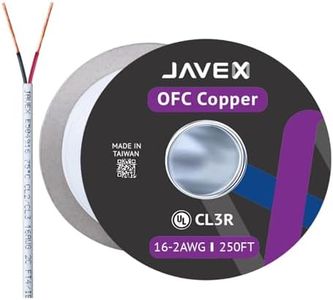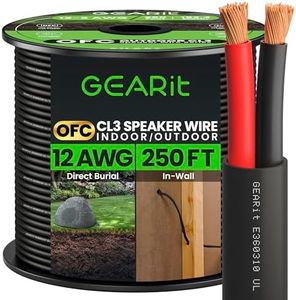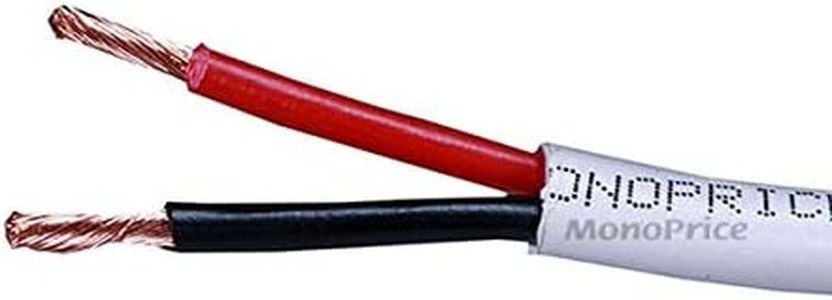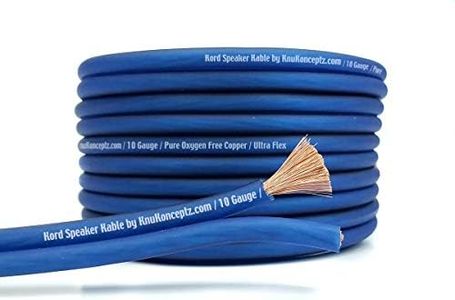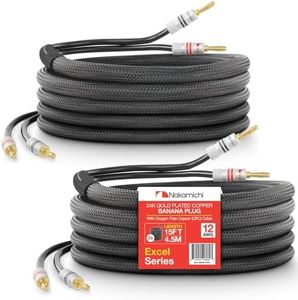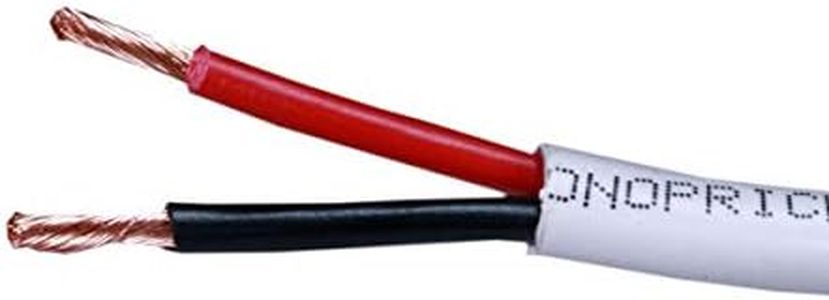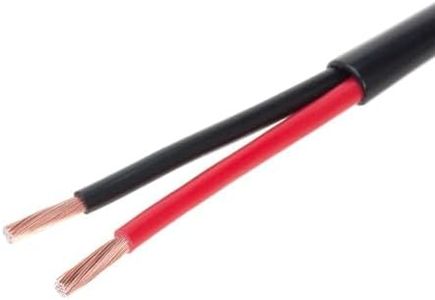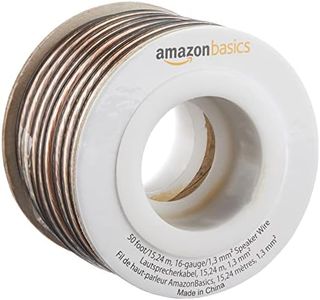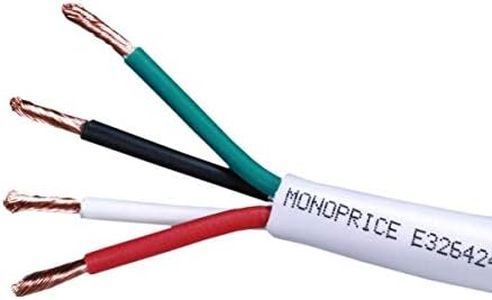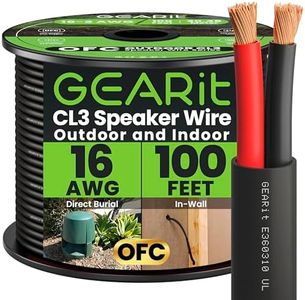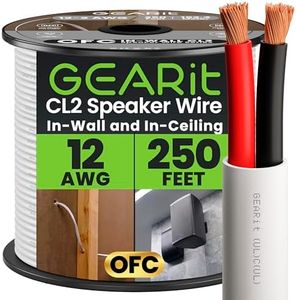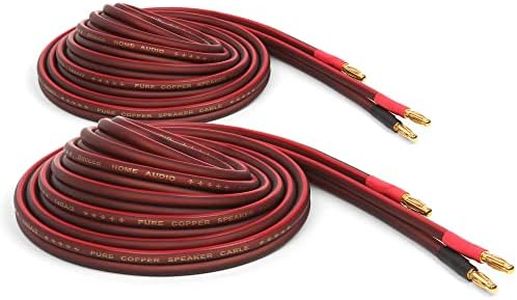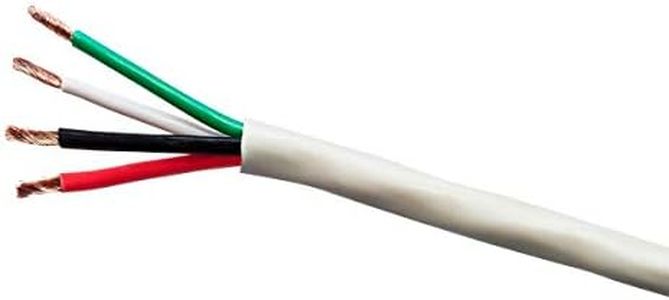We Use CookiesWe use cookies to enhance the security, performance,
functionality and for analytical and promotional activities. By continuing to browse this site you
are agreeing to our privacy policy
10 Best Rated Speaker Wire
From leading brands and best sellers available on the web.By clicking on a link to a third party's website, log data is shared with that third party.
Buying Guide for the Best Rated Speaker Wire
Choosing the right rated speaker wire is essential for getting the best sound from your audio system while ensuring safe and reliable operation. Speaker wire may look simple, but its different features can affect audio quality, durability, and compatibility with your setup. By understanding what to look for, you can match your wire to your needs and get the most out of your speakers. Always consider the length, location, and power requirements of your speakers before choosing.Wire Gauge (AWG)Wire gauge (often shown as AWG, or American Wire Gauge) describes the thickness of the wire. Thicker wires (with a lower AWG number, like 12 or 14 AWG) can carry more current over longer distances, and are better for high-powered or distant speakers because they reduce the loss of sound signal. Thinner wires (with a higher AWG number, like 16 or 18 AWG) are usually fine for short runs and lower-powered systems. Decide what gauge you need based on how far your speakers are from your amplifier: for short distances (under 25 feet), 16 AWG may be enough, but longer runs or higher power setups will benefit from 14 or 12 AWG to maintain sound quality.
Material (Copper, CCA)Speaker wires are usually made out of copper or copper-clad aluminum (CCA). Pure copper is a better conductor, meaning it transmits the audio signal with less loss, which can mean clearer sound. CCA wires are less expensive but don’t work as well over long distances or for high-power applications. For critical listening or long wire runs, choose pure copper for best performance. If the wires are short and the audio system isn’t very powerful, CCA can be a budget-friendly alternative.
Insulation and Jacket MaterialInsulation is the protective layer around the wire that prevents shorts and electrical interference, while also making the wire safer to handle. Some insulation is simple plastic, while other types are rated for in-wall use or outdoor use, offering extra protection from heat, moisture, or sunlight. The kind of insulation you pick should be based on where you’ll be installing the wire: regular plastic is fine for open, indoor spaces, but for running wire inside walls or outside, look for "CL2" or "CL3" (for in-wall) or "direct burial" (for outdoor) ratings.
Length of Wire RunThe length of your speaker wire affects both the sound quality and the type of wire you need. Longer wire runs can lead to more resistance and loss of signal, so if your speakers are far from your audio source, you’ll need thicker wire. Measure the distance from your amp or receiver to each speaker, and always allow a little extra for routing and connecting. For long distances (over 50 feet), use a thicker wire (like 12 or 14 AWG) to preserve the quality of the sound.
Connector CompatibilitySome speaker wires are sold stripped at the ends, while others come with connectors like banana plugs or spade lugs attached. The end connectors make it easier to plug the wire into your speakers or amplifier, and create solid, reliable contact. You should check what kind of connections your gear supports before buying. If your speakers or amp accept bare wire, you can use stripped wire ends; if they have binding posts or jacks that support banana plugs, you might prefer pre-terminated wires for a tidier and more secure setup.
